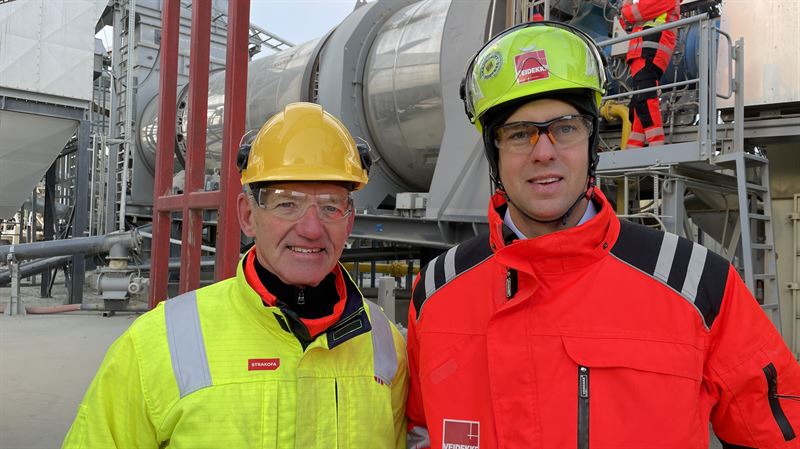Veidekke’s asphalt factory in Kristiansund, Norway, has set an environmental milestone by producing 3,000 tonnes of asphalt using hydrogen as the sole energy source.
This remarkable feat marks the first instance in history where asphalt is manufactured without any greenhouse gas emissions, paving the way for a sustainable future in road construction. The initiative, developed in collaboration with the German industrial group Benninghoven and supported by Enova, demonstrates the potential of hydrogen as a clean energy solution in a critical industrial process.
Martin Holmqvist, the director of Veidekke Asphalt, emphasizes the shift in focus necessary for achieving ambitious climate targets in Norway’s asphalt industry. While electric vehicles and machinery have been a focal point, they contribute to less than 20% of the total emissions associated with raw materials, production, and asphalt laying. The groundbreaking use of hydrogen in asphalt plants alone has the potential to slash overall emissions by a substantial 40%, showcasing the transformative impact of embracing hydrogen technology.
Veidekke Infrastructure’s EVP, Øivind Larsen, highlights the broader European recognition of hydrogen as a realistic and emission-free energy option for asphalt production. Germany and other prominent EU countries acknowledge the versatility of hydrogen, which can be produced from wind turbines, solar parks, and hydropower, providing a constant and renewable energy source for the demanding asphalt production process.
As the world approaches the critical year 2030, Veidekke underscores the urgency for wise and courageous political decisions to significantly reduce greenhouse gas emissions. The successful demonstration of asphalt production using hydrogen serves as a call for clear guidelines and priorities from policymakers and customers alike. Veidekke envisions the potential for large-scale hydrogen utilization across its 25 asphalt plants if Norway can establish full-scale industrial production and distribution of hydrogen.
The asphalt production industry in Norway contributes approximately 400,000 tonnes of CO2 emissions annually, making it a significant environmental concern. Traditional energy sources such as gas, propane, diesel, biodiesel, and wood pellets have been the alternatives, each carrying its own set of greenhouse gas emissions. The move towards hydrogen is not only a technological breakthrough but also aligns with the evolving EU regulations that limit the use of wood and pellets for energy purposes, emphasizing the need for cleaner and more sustainable solutions.
